There are two levels of the same reaction, the same feeling black Americans are having right now. The immediate feeling is outrage. The Murder of black people, public or not, is tacitly and generally accepted by mainstream America. The first level is feeling appalled at the pure injustice of it. The naked reality that, even still, over 150 years after slavery was abolished, there’s still a distinct and explicit disregard for black life.
The other level is outrage at how common and routine this is. George Floyd isn’t the first black man killed by people who’s jobs were to be his protectors. This level of anger is deeper, because there’s a growing fear of escalation coming before meaningful change. Murder is a universally understood evil, yet the justice system drags its feet. Those who point out the hypocrisy of the system have been made enemies of the country by it’s chief protector, the President.
This is a moment in history that America has to recognize, to overthrow the worst among us that represents us, and enact positive change in our institutions and infrastructures
My anger is that this is as far as our energy might take us, when we’re overpowered by an individual who reinforces the notions of the just and the unjust through racialized lines. This is a moment in history that America has to recognize, to overthrow the worst among us that represents us, and enact positive change in our institutions and infrastructures. Does this mean fundamentally changing the police, or is that an institution that’s too far gone to fix, and needs to be thrown out?
We are furious, and that fury comes from fear, and that fear comes from the fact that racism in America is as entrenched in its lifeblood since before the country was founded. Can racism be defeated completely? Because moments like this where people are murdered by policemen, PROTECTORS, are moments that scream for us to make a change and set things right. My fear is that the task before us is either too daunting to attempt to achieve, or we’re so used to injustice that we can’t recognize it as an opportunity and more people will die.
I’m afraid, and because of that fear, I’m angry.
Donovan
I was asked by the Tageblatt to share my thoughts and perspective on the recent events that have taken place in the United States, culminating in unprecedented levels of protest and rioting, vandalism and looting across 30 major cities throughout the country. Against the backdrop of a pandemic, lockdowns, economic distress, 40 million unemployed, and a series of explosive racial events culminating in the murder of George Floyd, a black man, at the hands of police, the country exploded in rage and has been burning the past few days.
Like most of the country, I was in a state of shock having seen the recording of Mr. Floyd’s death. It’s not as if I hadn’t been desensitized to the specter of unarmed black men dying in police custody, but the actions of Officer Derek Chauvin were so depraved and torturous that understandably, they elicited a groundswell of emotion leading up to and culminating in the chaotic situation we’ve seen in recent days.
While I don’t condone rampant destruction and vandalism, I view these as a consequence of the failure of many of our cities to adequately protect and defend their marginalized communities
While I don’t condone rampant destruction and vandalism, I view these as a consequence of the failure of many of our cities to adequately protect and defend their marginalized communities. In abdicating their responsibility to their people they’ve left a vacuum in place, one filled by opportunists and anarchists using legitimate protests as cover. It’s always tempting to segue into a treatise on race relations within the United States whenever these issues manifest, but for purposes of this particular exercise and to keep things in scope my focus will be on police brutality.
As a black man myself, I’m intimately familiar with the contentious relationship between black Americans and U.S. law enforcement. Having grown up in the inner city (NYC) I’m considered a “success story” – and managed to evade many of the pitfalls young black men face within our criminal justice system, ascending to a life of relative privilege. I’m a military veteran, Ivy-league educated, and am part of the white collared knowledge economy largely shielded from the adverse economic trends disrupting the lives of our working class. Despite my relative successes, I’d also been harassed by police on numerous occasions.
„None of my credentials mattered“
None of my credentials mattered during any of those stops; what those police saw was the color of my skin. During the peak stop-and-frisk era in NYC I’d been accosted so often that I eventually made the decision to flee the city outright for fear that I’d eventually be harmed or worse. In fact, millions of innocent black men endured the same treatment during that period (any demographic assessment of the program will show bear that out), as stop-and-frisk was praised as an effective gun crime prevention tactic though it was essentially wide-spread, state sanctioned profiling.
And since guns only turned up in 0.1% of cases, it’s not hard to see why such a program would erode trust of law enforcement within the black community. How many innocent black men were accosted or treated like criminals within that span? Such a policy incentivizes officers to view every black face as criminal. And when everyone “looks suspicious” or “looks like the enemy” that can have deadly consequences during the most routine police interactions.
Police are also under tremendous pressure to raise revenues for their cities, so that acts as an additional perverse incentive to drum up as many tickets, summonses, and arrests as possible within marginalized communities
Police are also under tremendous pressure to raise revenues for their cities, so that acts as an additional perverse incentive to drum up as many tickets, summonses, and arrests as possible within marginalized communities. The result is a relationship not unlike that of an occupying army within a captured territory. That pressure to raise revenues manifests in the rapid-and sometimes violent-escalation of police encounters even for minor offenses. Eric Garner had been selling loosie cigarettes when he was killed. Laquan McDonald was shot and killed for walking erratically. Sandra Bland was “detained” because she refused to put out her cigarette during a traffic stop. George Floyd died over an alleged counterfeit $20 bill. The list is as tragic as it is endless.
When these tragedies happen police apologists are quick to lay blame at the feet of the victims. “Why was he resisting?” “Why was she talking back?” The more diplomatic ones will attribute these incidences to “bad apples”. When Amy Cooper racialized her threat to tell police specifically that “an African American man is threatening my life” the implication was clear: she wasn’t hoping that a “bad apple” would show up, but rather was expecting that anyone the institution sent over would abuse her target.
That isn’t by coincidence. Her expectation was that his blackness alone would be enough to escalate the situation to his detriment. People are inherently aware of this dynamic, but few recognize/realize that the actual mandates that police have been given to deploy aggressive tactics on the black community are what drive it. They’re encouraged to view black people as dangerous and criminal going into every encounter – either through profiling or under the assumption that there must be a crime to charge. It reinforces their implicit biases and colors their interactions.
Sure, there are bad apples, but I’d put my money on the targeting policies as the biggest danger. What I hope more people start asking is just how many of these incidences don’t get the benefit of video? Obviously, not all police interactions will end in death – how many simply end in unnecessary arrests or harassment? Or fines that become hardships? Or violent, though not necessarily fatal, altercations?
The temptation to view the headlined murders as isolated incidents is strong when you’ve no perspective of these police encounters on balance as symptoms of a systemic issue. One that black people have been trying to call attention to for years, most recently with the Black Lives Matter movement, and the protests of one Colin Kaepernick.
My immediate hope is that each of the officers involved with George Floyd’s death are arrested, charged, and tried. Justice needs to be served if we’re to move forward. Medium term I would like the violence to subside and the protests to continue with their original peaceful intent, as I believe they’re needed more than ever. Perhaps this time the people who ignored and attacked Colin Kaepernick will welcome peaceful protests having seen the worst-case scenario, and use them to bring about reforms in the way that black communities are policed.
While we’ve made significant progress on racial issues, the view of law enforcement as sacrosanct in many cities has made it difficult to reform the way they operate
While we’ve made significant progress on racial issues, the view of law enforcement as sacrosanct in many cities has made it difficult to reform the way they operate. I’m not a policy expert, but I’d call for an immediate end to quotas or revenue targets for police, mandatory bodycams for all officers, and increases in the number of beat cops in communities in order to build some goodwill and establish relationships.
I’d couple it with a clearly defined protocol for evaluating, sanctioning, and prosecuting officers who’ve shown to abuse their authority in any way. It takes galvanizing incidences like the murder of George Floyd just to call their practices into scrutiny.
President Trump’s First Step Act was a great start for improving the lives of those unjustly pulled into our justice system, but there’s much work to be done on the law enforcement side to limit the sort of systemic racism that had led us to mass incarceration and disparate sentencing, the routine violation of our 4th amendment rights, the aggressive over-policing of our communities, and senseless deaths like that of George Floyd’s.
James


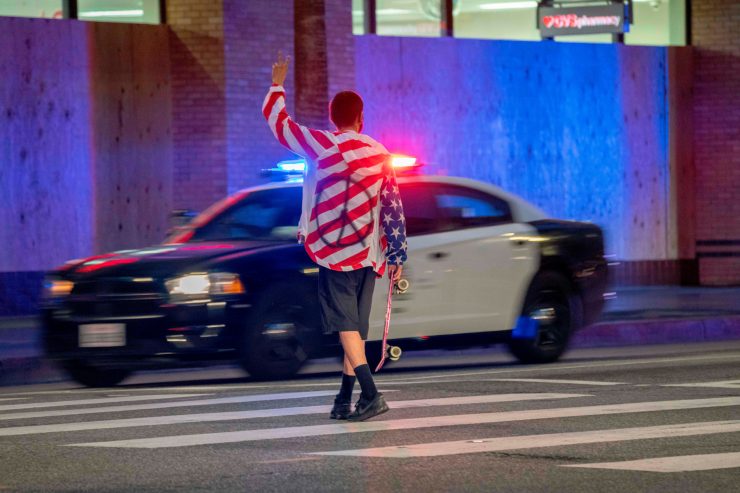
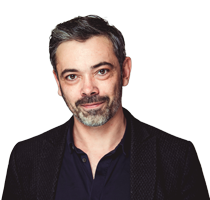
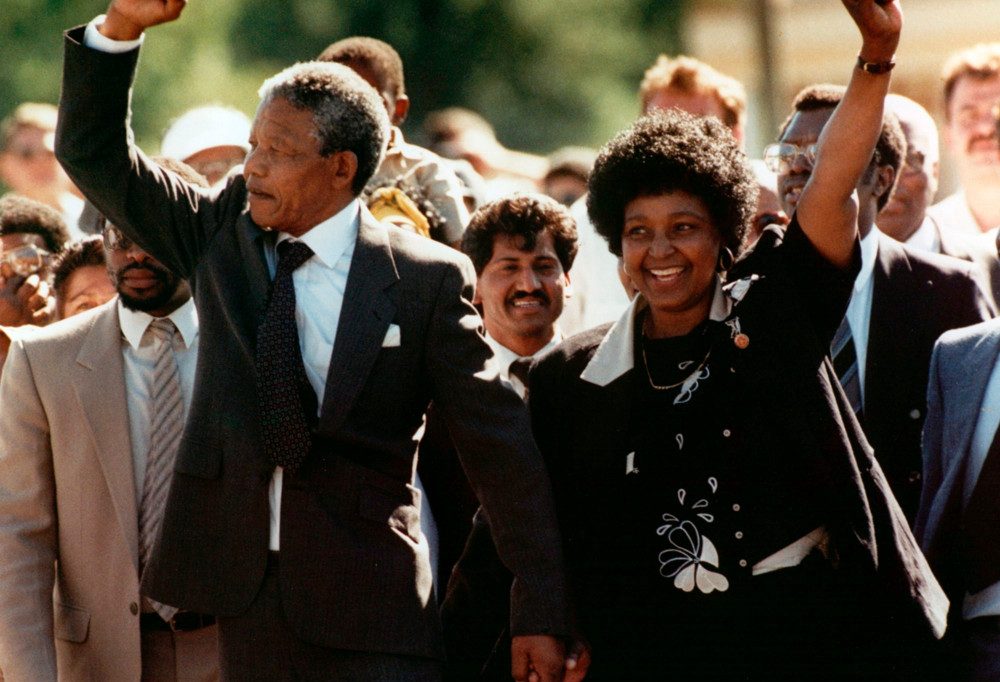
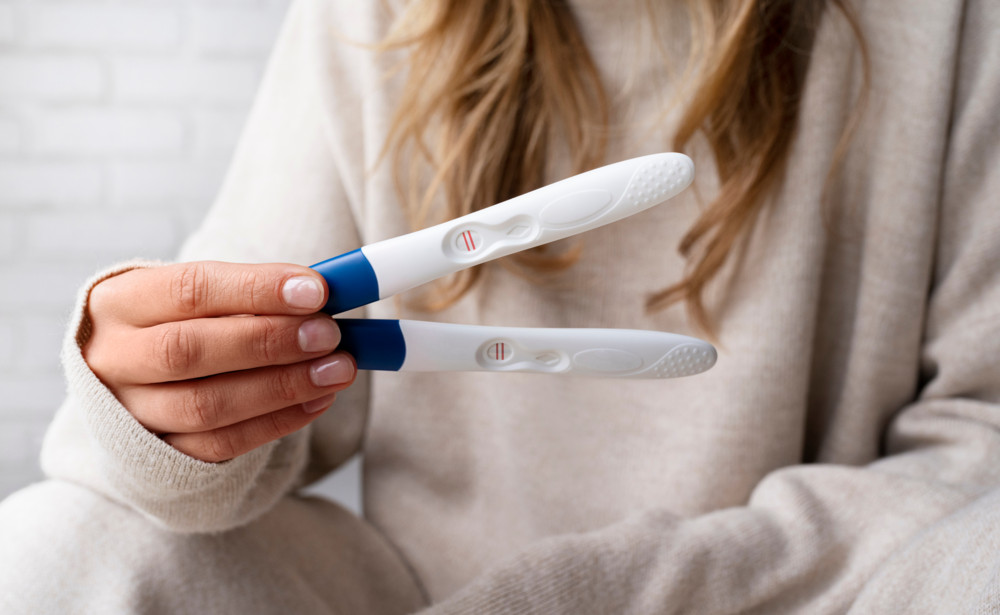
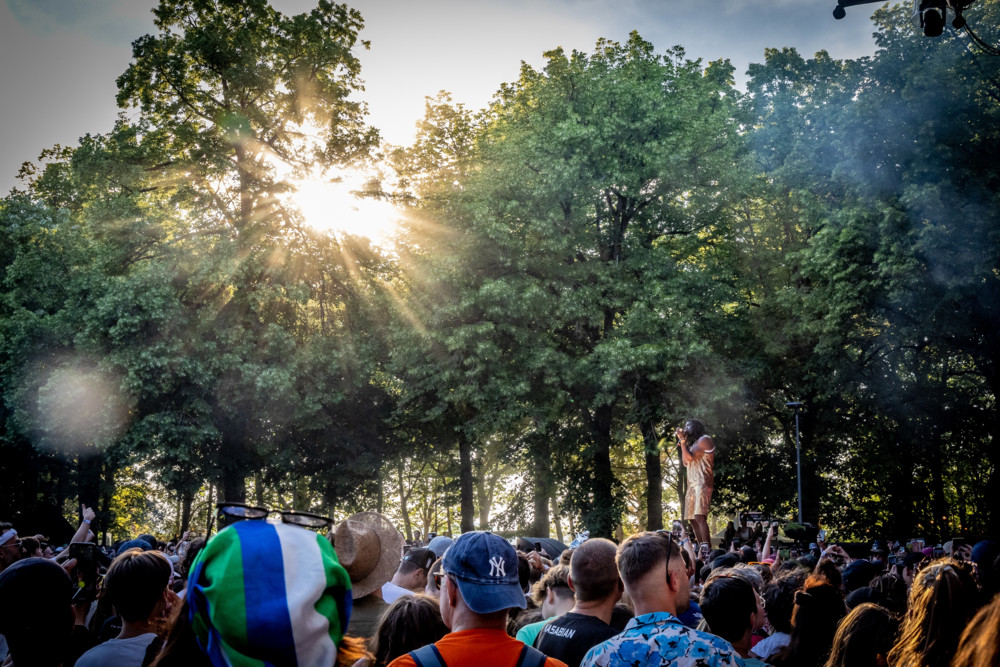

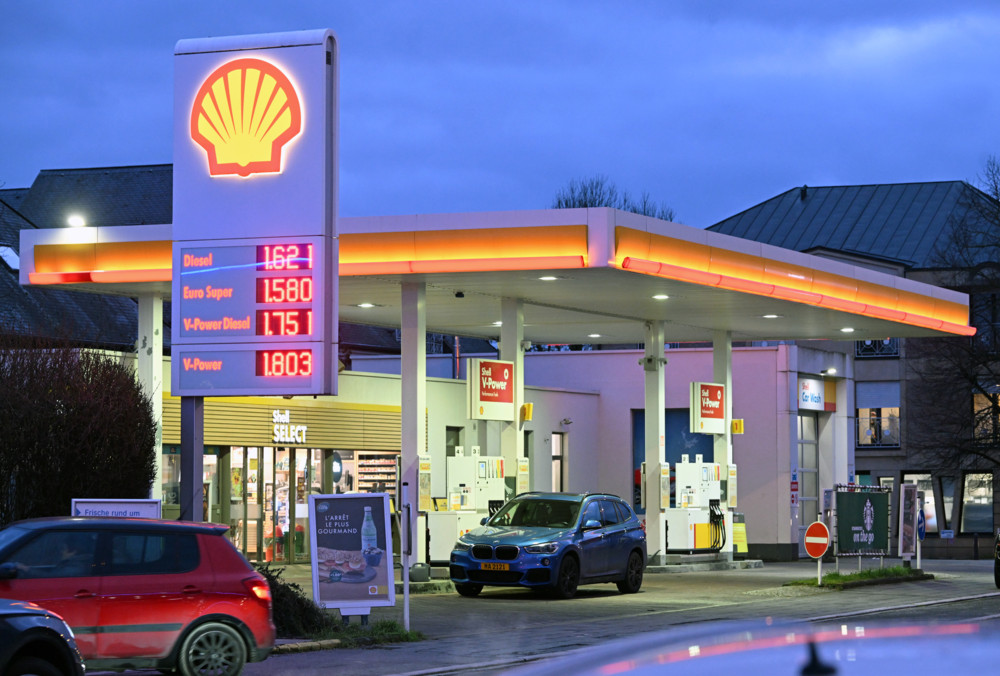
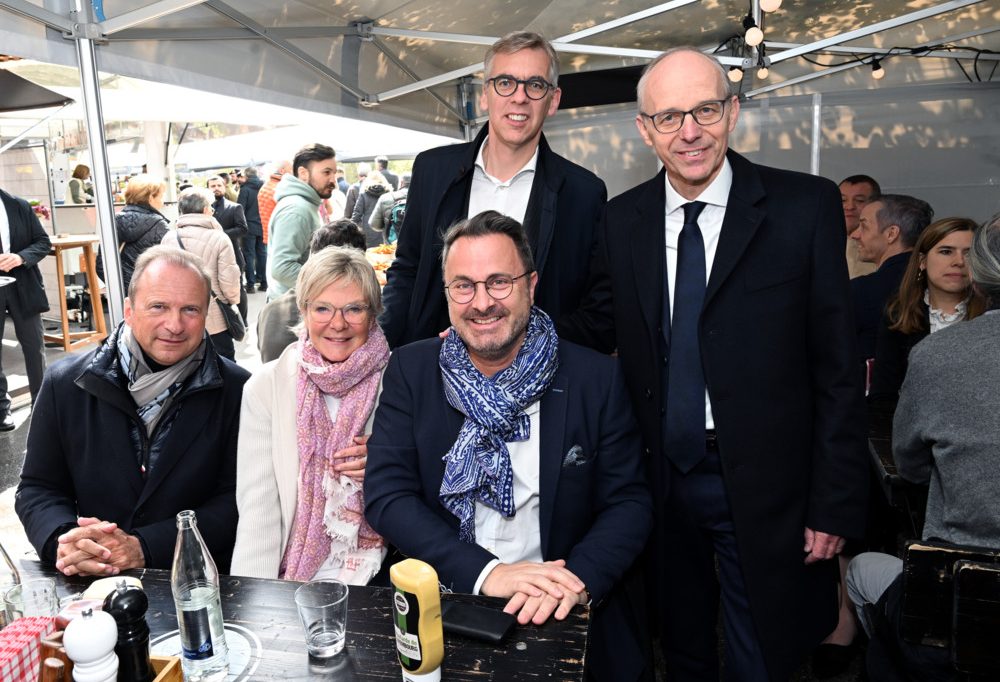
Sie müssen angemeldet sein um kommentieren zu können